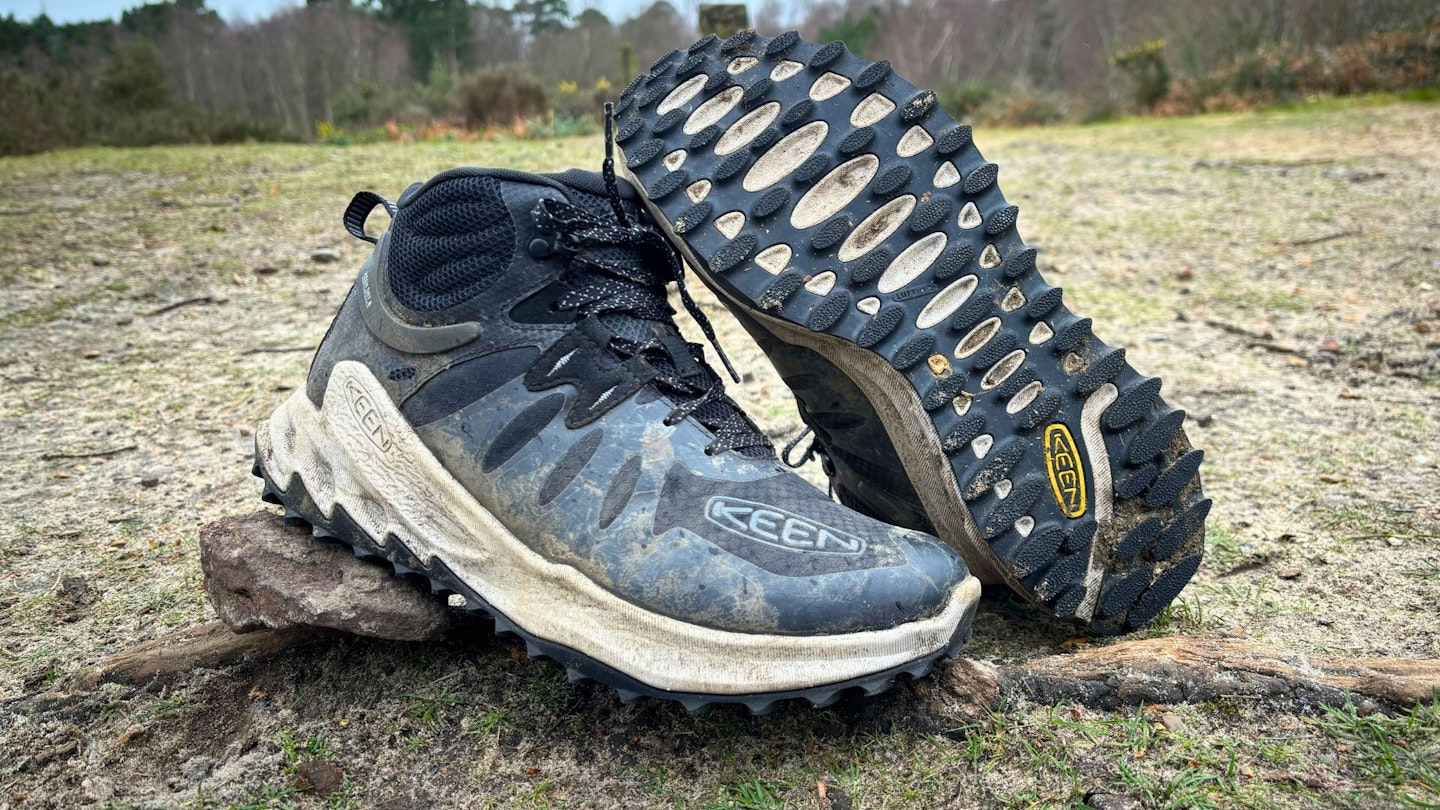Faster, farther, funner. You can always rely on US brand Keen to sell its hiking boots, shoes, and sandals with wit and a degree of self-parody.
But as a headline setting out the priorities for a new boot, those three words are pretty effective (even if one of them doesn’t exist). The Zionic is a boot that wants to take you far away, make you feel fleet-footed, and show you a good time.
One of the reasons we were keen (sorry) to review the Zionic boot was because of Keen’s famously wider fit. The lightweight boot market tends to be dominated by narrower-fitting products, so finding a boot that suits broader feet is rarer than it ought to be. Nevertheless, here it is.
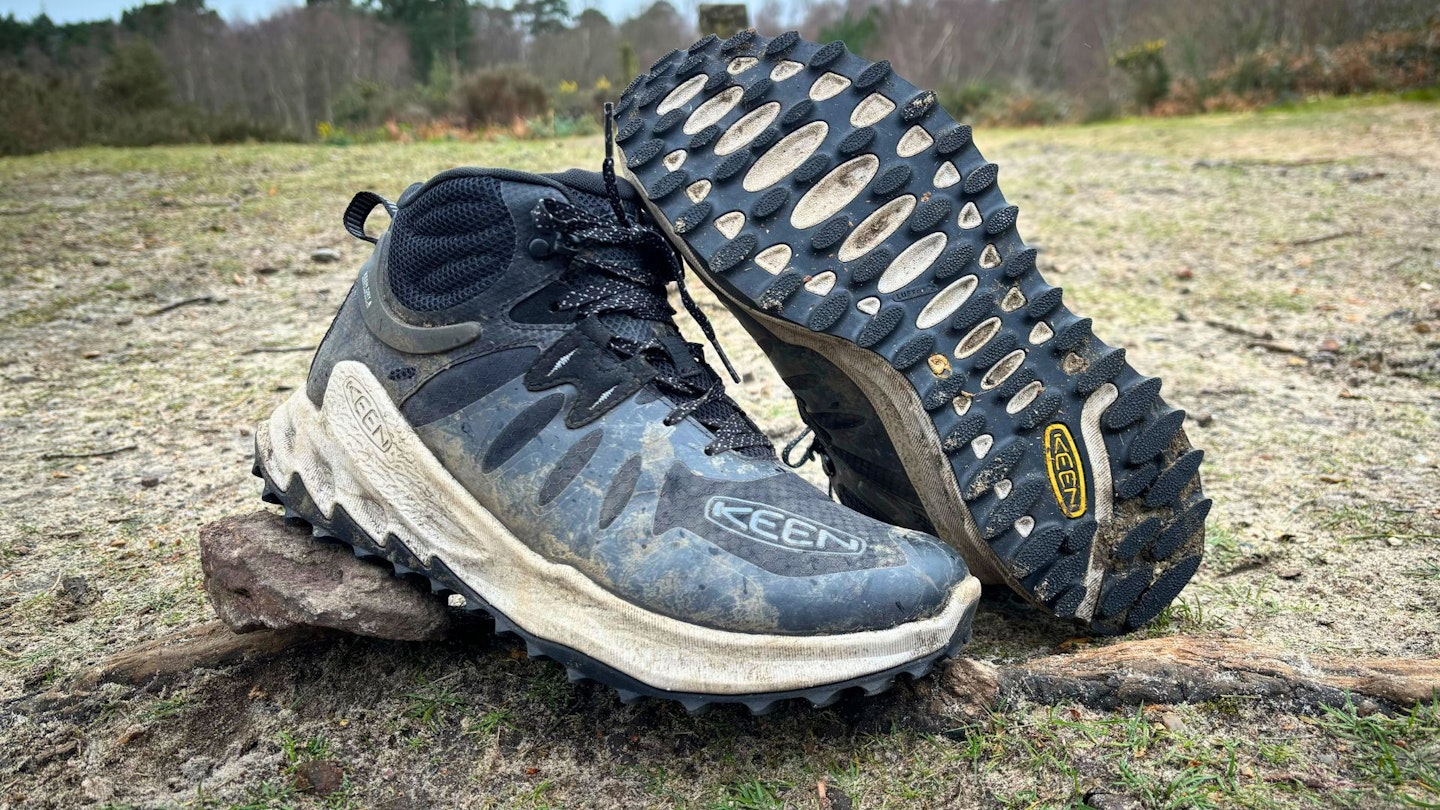
www.sportsshoes.com
Pros
- Lightweight
- Bouncy and cushioned underfoot
- Grippy
- More sustainable than many lightweight boots
Cons
- Midsole not as energetic as some rivals
| Weight (per boot) | 437g |
| Upper | Partially recycled synthetic upper w/ PFC-free KEEN.DRY lining |
| Sole | Keen sole w/ 4mm lugs |
| Men's sizes | EU 39.5 - 48 |
| Women's sizes | EU 35 - 43 |
Design and features
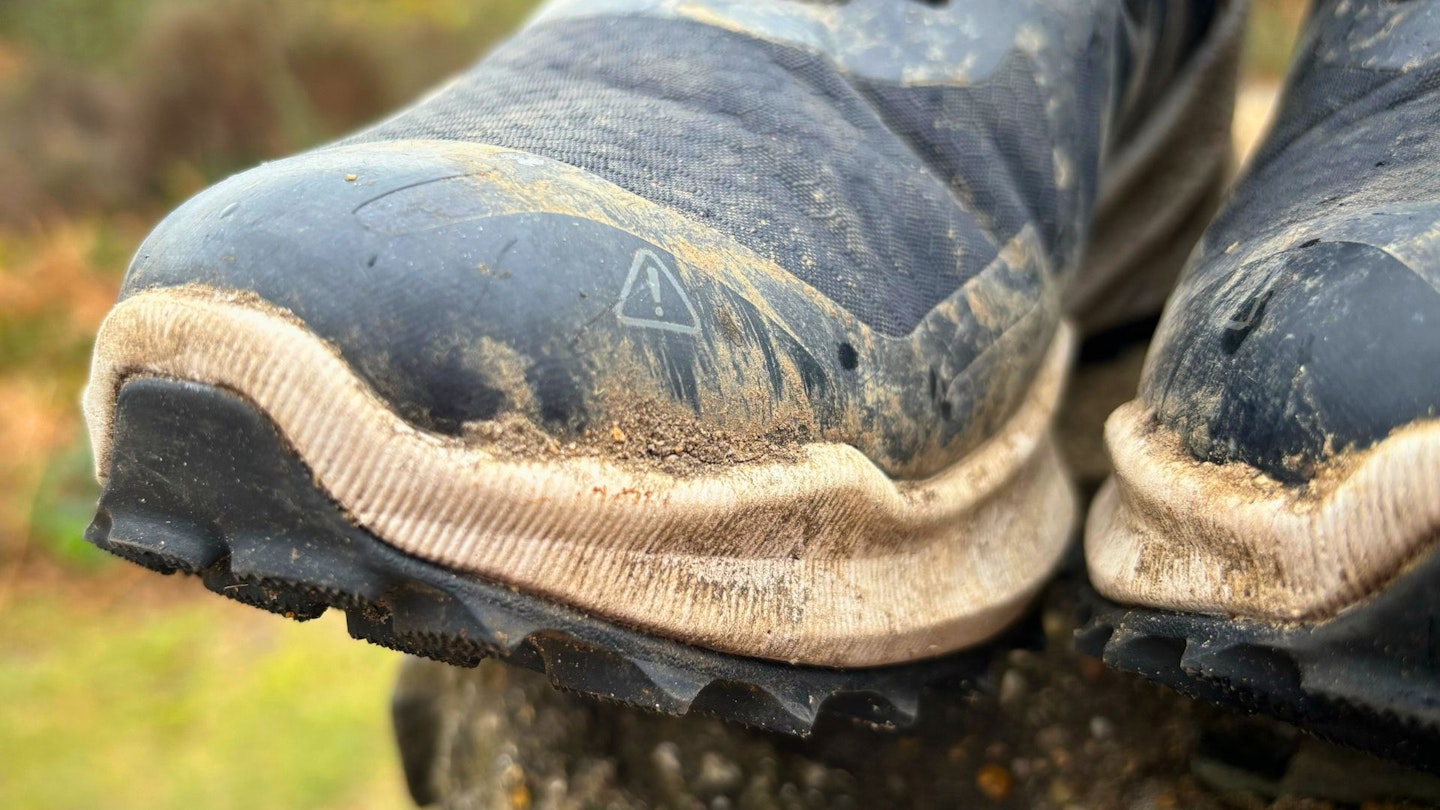
The Zionic is certainly lighter than Keen’s more established hiking boots, such as the massive-selling Targhee, because it strips away a lot of the protective bumpering that comes with them. The Targhee IIIweighs in at 490g; the Zionic barely nudges 437g.
It therefore goes toe to toe with some of the lightest walking boots on the market. The Zionic is a sleeker, swisher Keen boot for those not quite as worried about the impact of bumps, bangs and scuffs along the way.
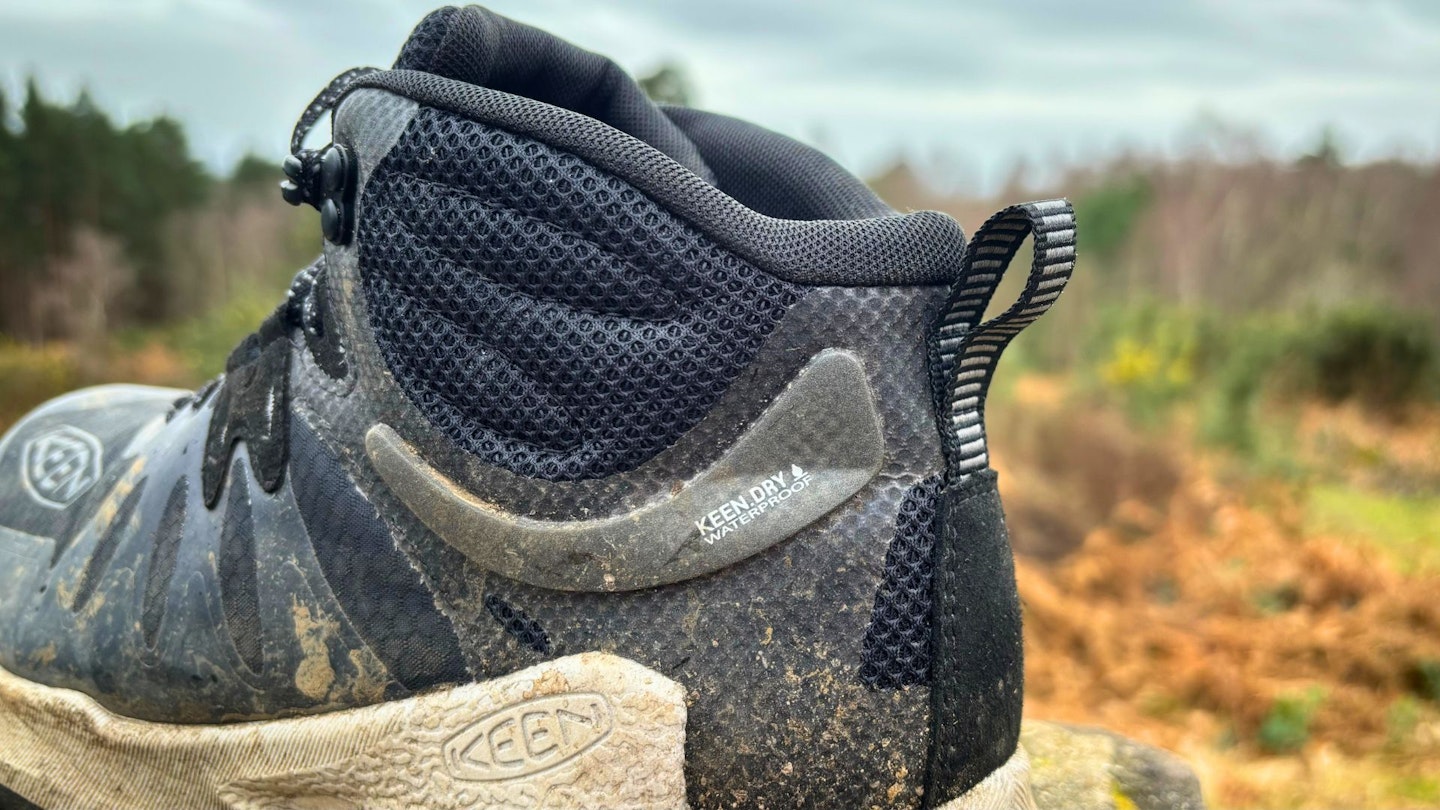
There are no third party additions like Gore-Tex or Vibram used on the Keen Zionic. Keen uses its own waterproof lining (KEEN.DRY) and soles. We’re well acquainted with the KEEN.DRY waterproof lining, having used it on many Keen boots over the years and it’s always been reliable.
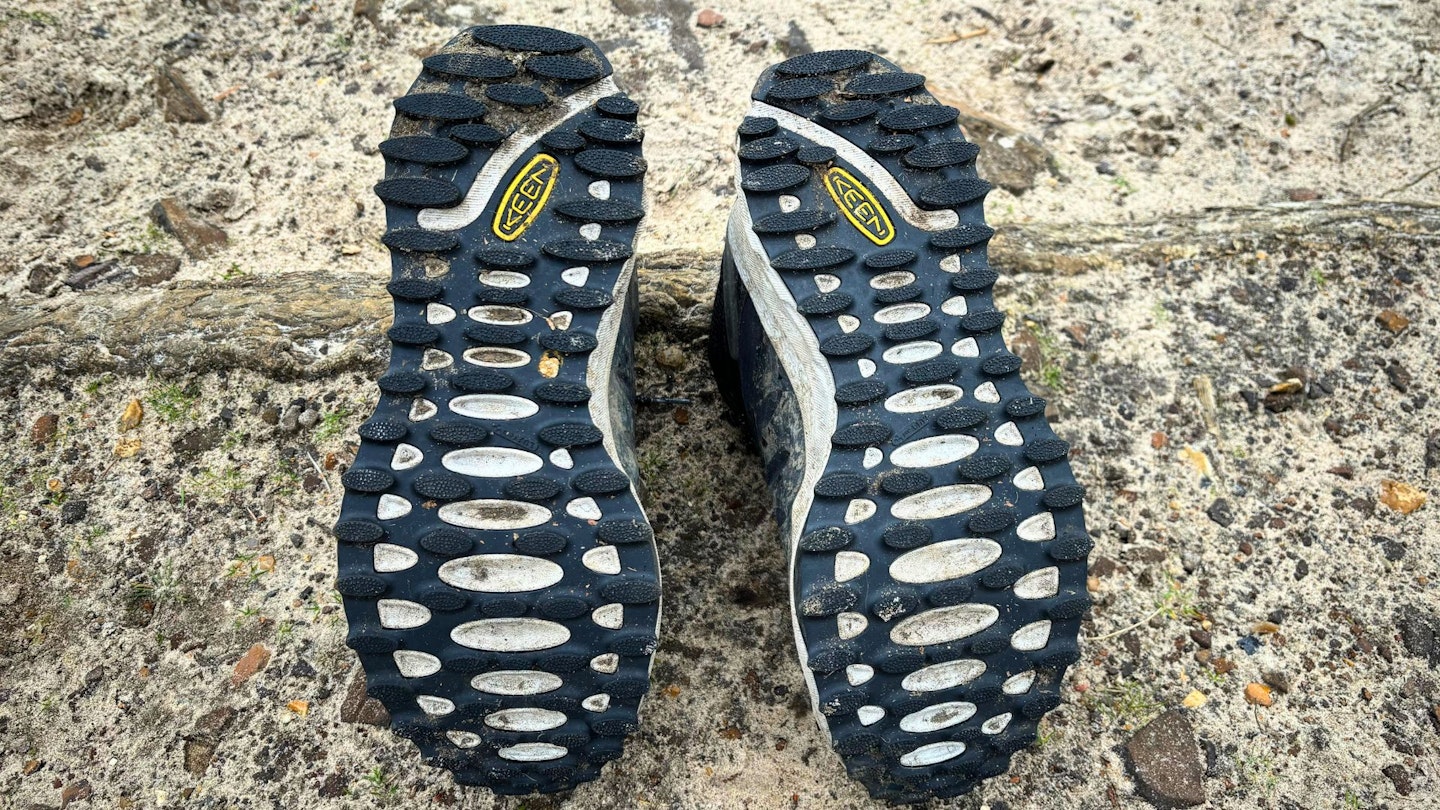
Likewise with Keen soles. Although they vary in design, we’ve found they are designed to offer decent mixed terrain traction, rather than being a hardcore mountain boot or mud plugger. On first inspection, it seemed to us to be the same story with the Zionic sole.
Performance and comfort
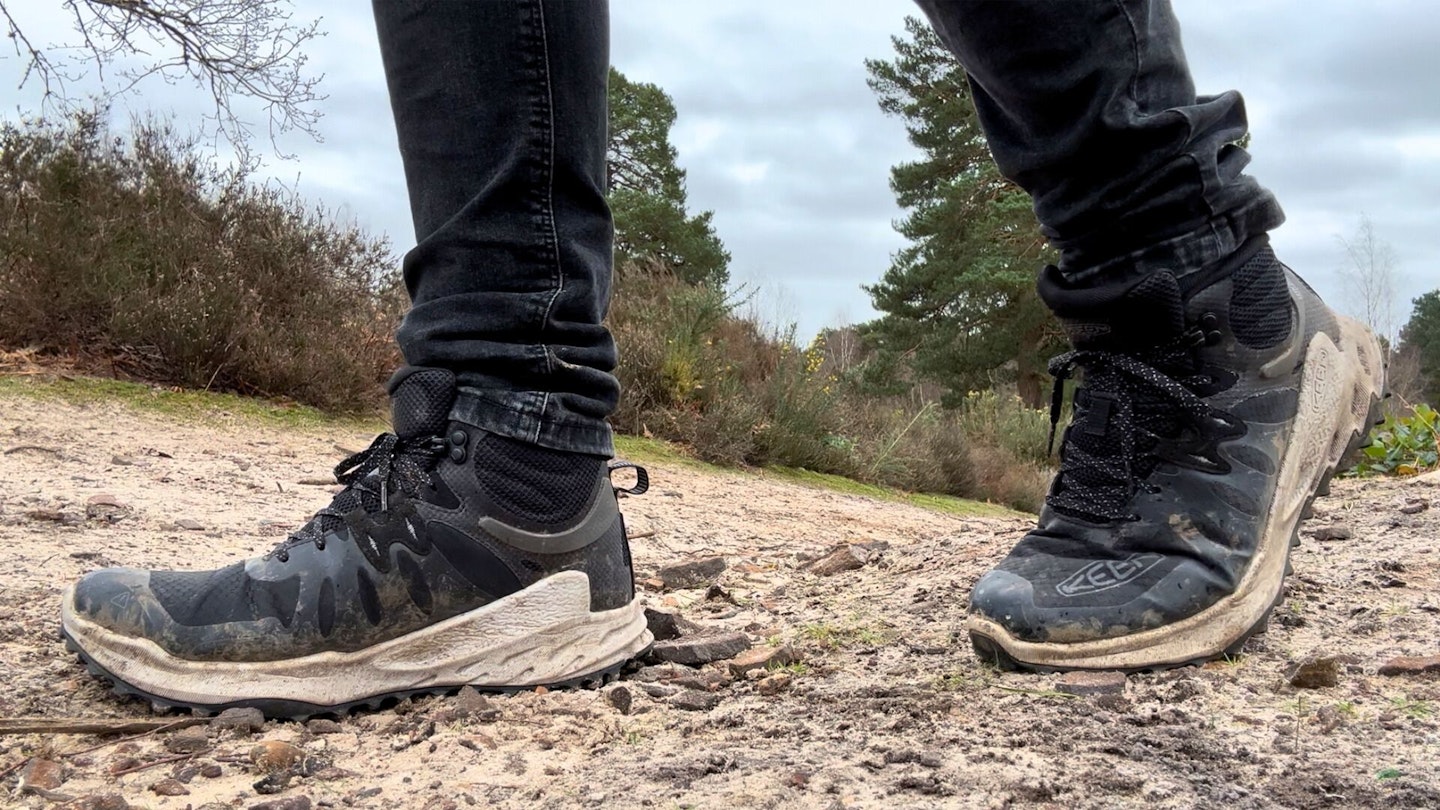
We found that the Zionic is an impressively adaptable and luxurious, yet still sporty, hiking boot. The insole cradles the foot sweetly, and there is a surprising degree of cushioning and padding.
It excels over rough, stony, and dusty terrain. The outsole has shallow lugs that give excellent grip, akin to a trail running shoe. We were also surprised at how well it handles muddy and boggy terrain too.
That said, it has a flat sole, and no heel breast to really bite into the terrain or act as a brake on descents. But if you don’t need those extra tools (and the weight and clompiness that comes with them), you may find there’s enough bite in the outsole anyway.
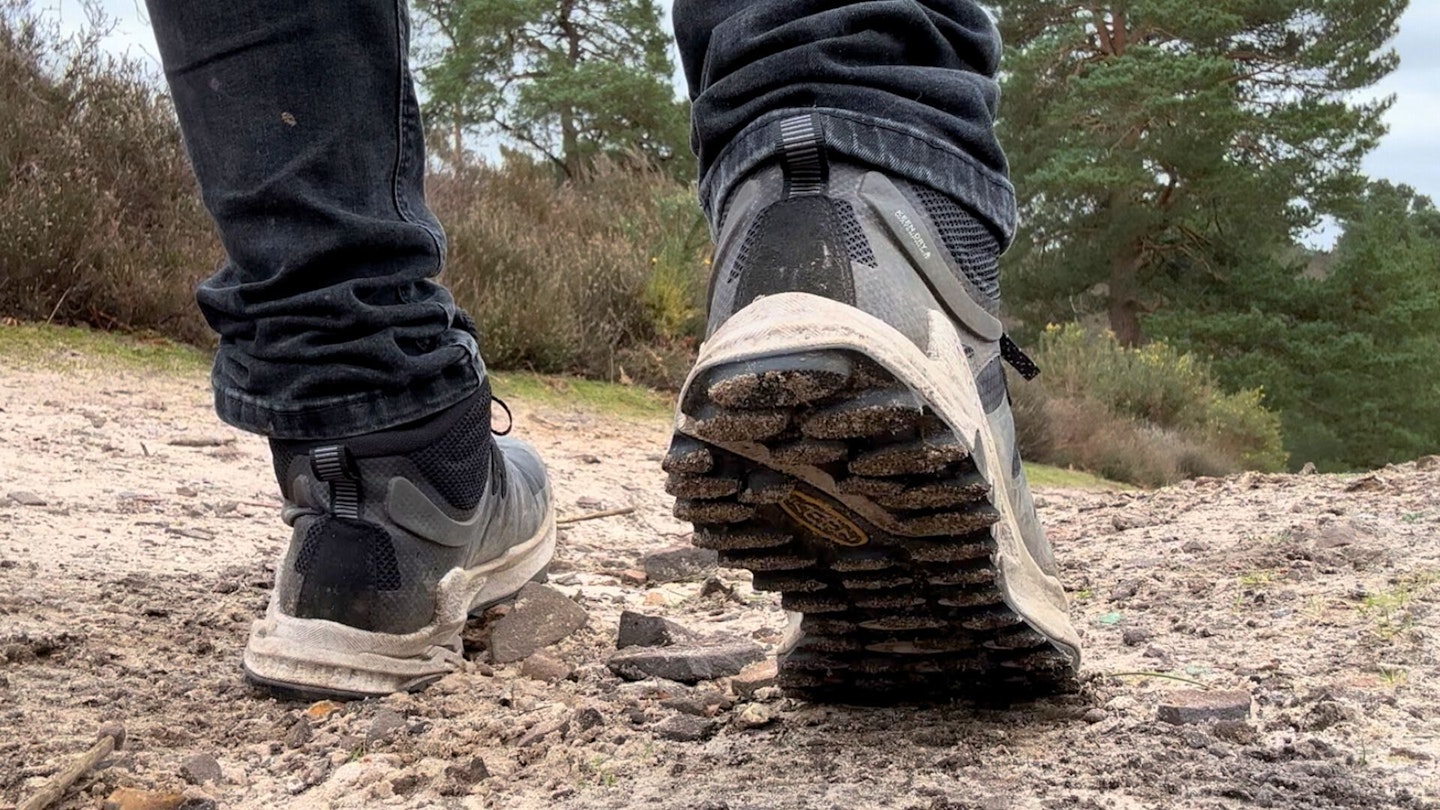
Lacing is good; it’s easy to get a firm, close fit and ankle support is fair to middling. There’s plenty of cushioning, but it doesn’t close around the ankle as firmly as full height boot. But again, if you don’t need the firmest ankle support, and would rather prioritise agility, that may not be a problem.
We’ve been wearing this through the worst of the January and February sogginess and the KEEN.DRY membrane is generally a reliable cove. It has let in water occasionally after full-on, day-long rain, but then so has pretty much every other boot in the same conditions. Most of the time it’s performed solidly.
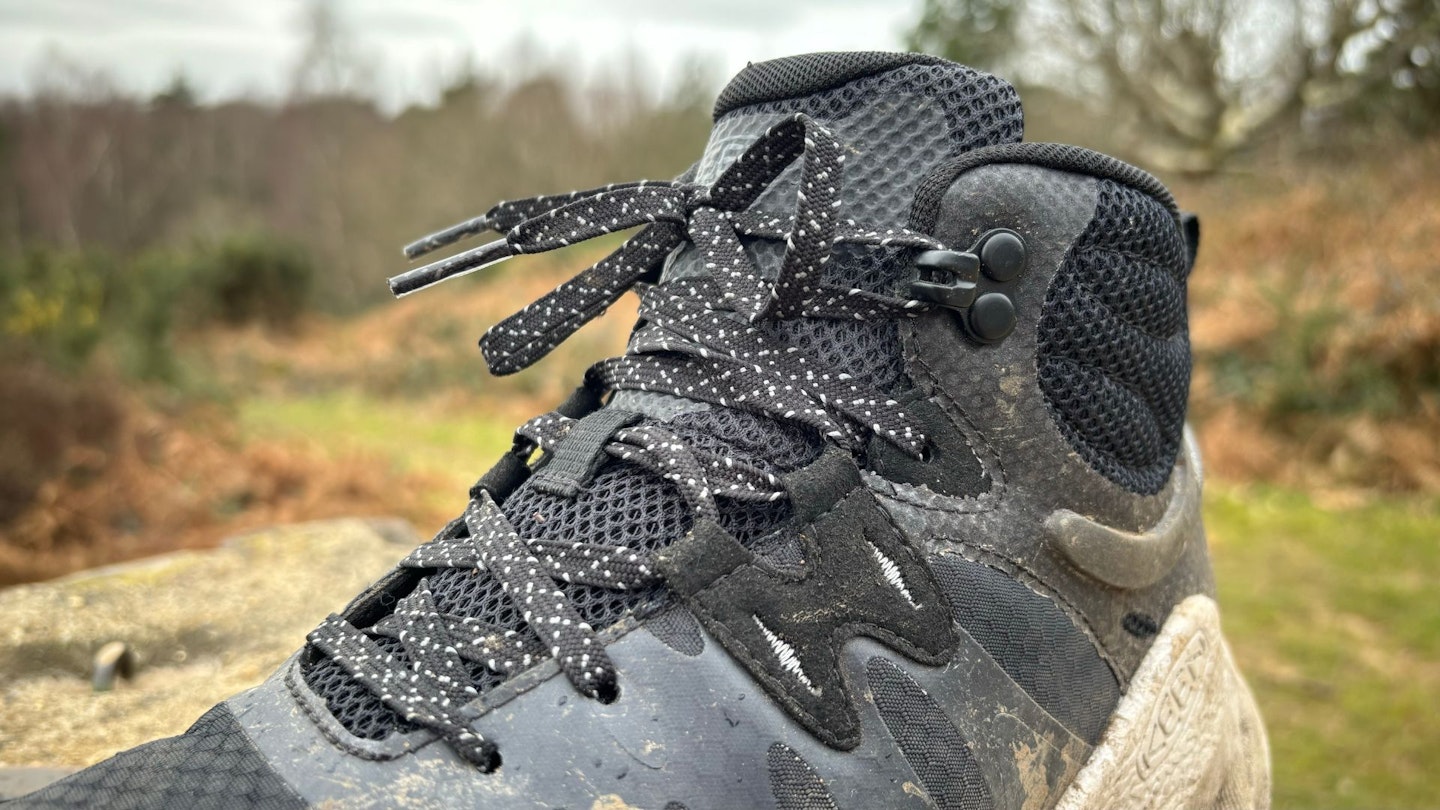
In fact, the only downside is that they can feel surprisingly leaden after a long day’s walking. We think it’s a combination of the rolling sole, a low stack height and all the padding and cushioning. Yes, it’s all bouncy and springy to start with, but over time we felt like we’ve lost the propulsion we need and they start to feel paradoxically heavy, especially over continuous flat ground.
But then, they probably aren’t made for continuous flat ground. And if you take them over rocky, soggy, shaley stuff, they will come to life and make things, dare we say it, funner.
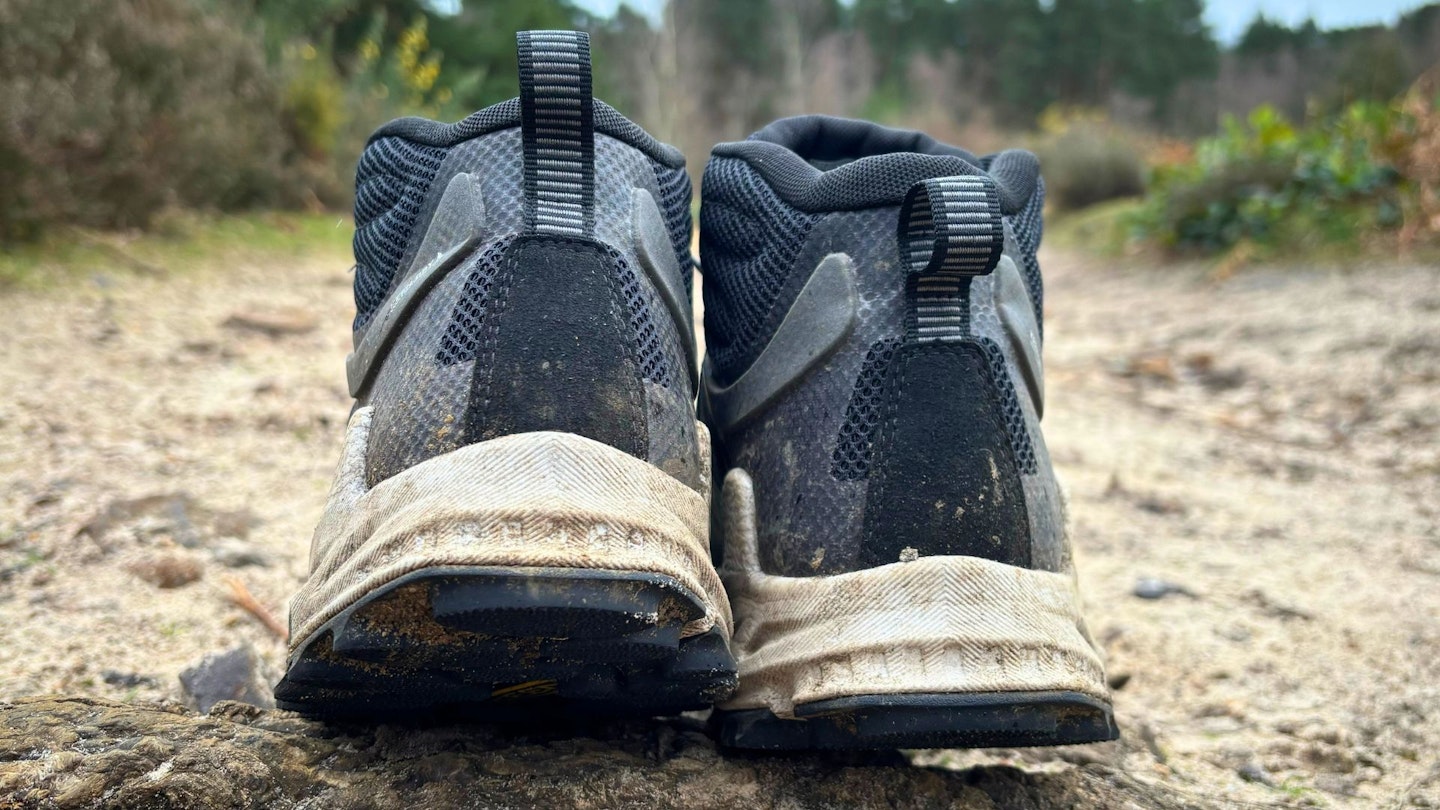
Sustainability
There are lots of ticks in the sustainability column for the Zionic, which is a major challenge for lightweight walking boots because they’re not usually very durable and are made from synthetic material.
The Zionic uses recycled PET plastic in its construction, PFAS/PFC-free durable water repellent (DWR) treatment, and Keen’s ‘Consciously Create’ promise which endeavours to reduce water consumption, improve the life cycle of their footwear, and ‘detox the planet’.
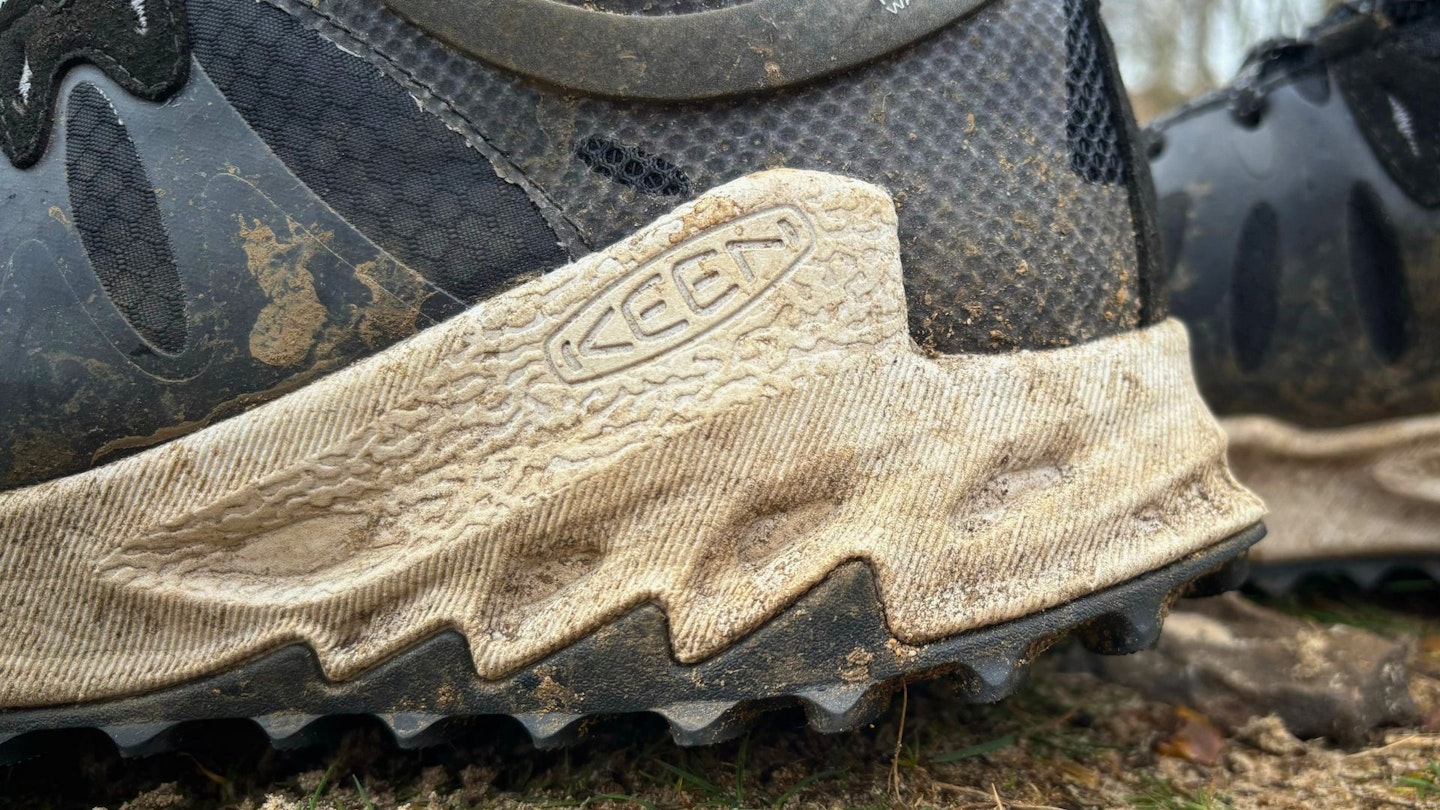
Price and competition
With an RRP of £160 (at the time of writing) the Zionic Waterproof Hiking Boot is a very similar price to many lightweight walking boots.
What’s certain is that if you’re looking for a lighter, bouncier, less restrictive sort of walking boot, the Zionic is worth your consideration. It certainly stands up to comparison with rivals like the Salomon X Ultra 360 Edge and Merrell Moab Speed 2 Mid GTX.
One of the big USPs the Zionic has over rivals is a wider fit. Although, there are a couple of alternatives here too such as the Altra Timp Hiker.
Verdict

As it has done with walking boots in general, Keen brings a much-needed wide fit model to the surging lightweight boot market with the Zionic.
But that’s not the only thing going for it – it has decent eco credentials, impressive grip, and performs best on hilly, uneven terrain.
How we tested
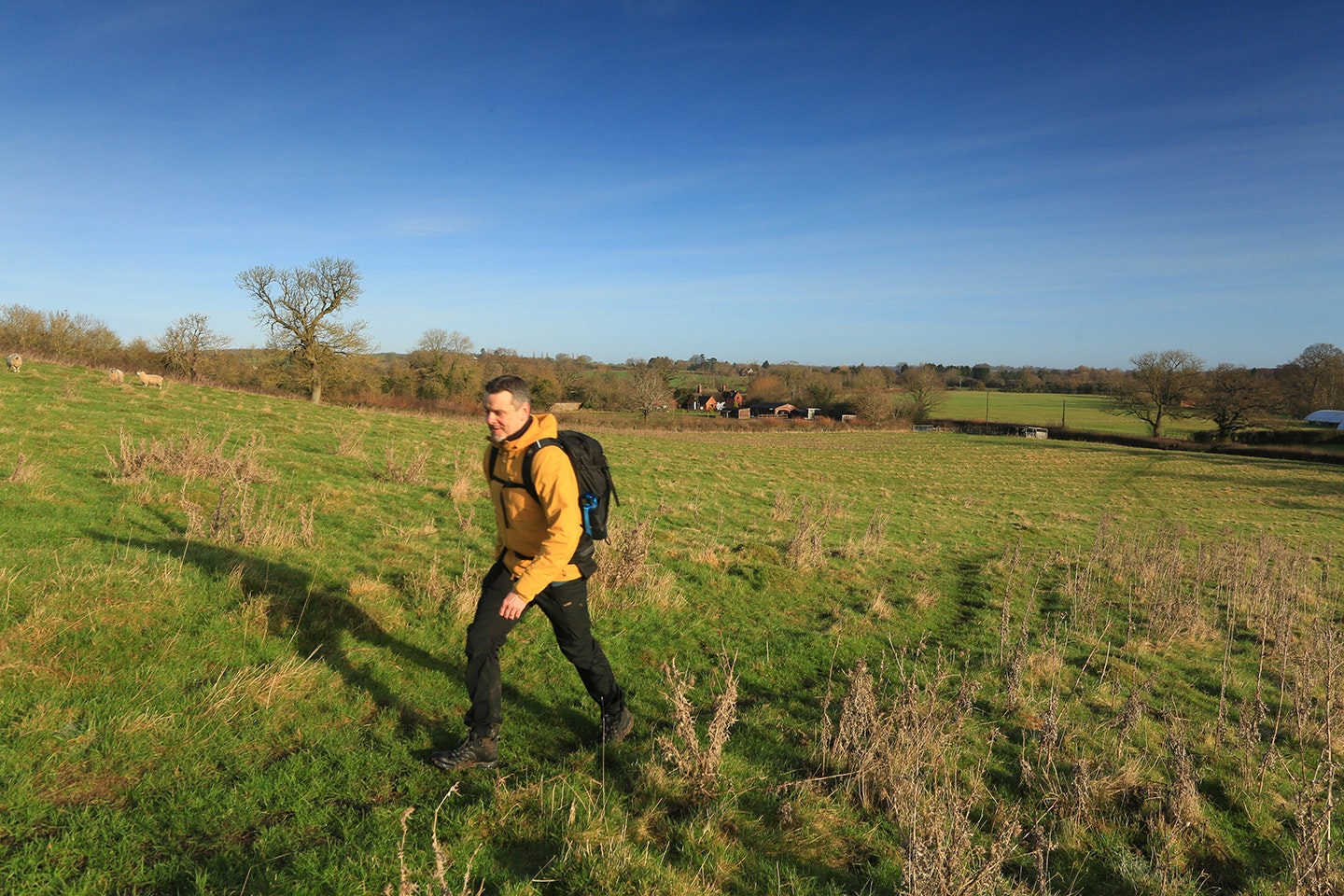
The Keen Zionic Waterproof Hiking Boot was tested and reviewed by Nick Hallissey.
Nick is the Deputy Editor of Country Walking Magazine and has been testing kit for Live For The Outdoors and Country Walking for nearly 20 years, exploring and telling stories from the length and breadth of Britain, and overseas.
